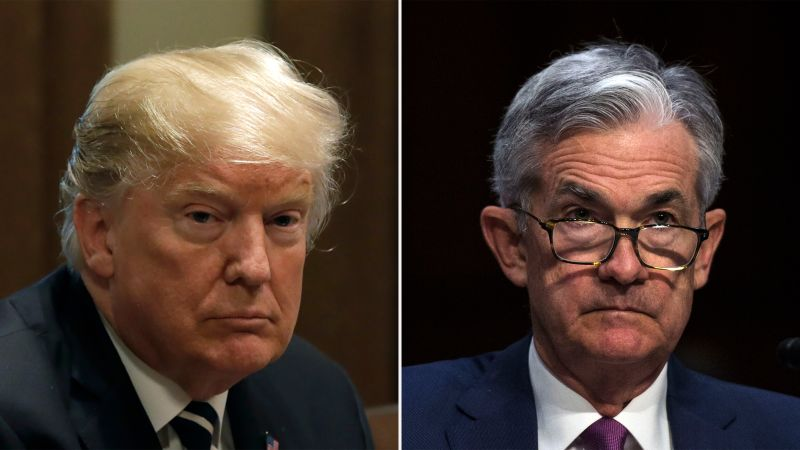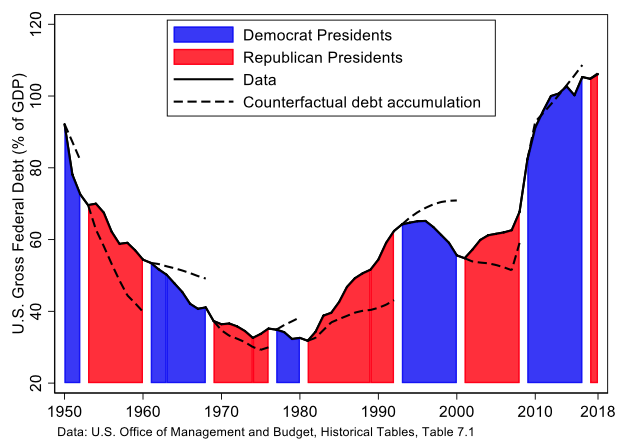
Trump Firing Fed Chairman: Legal and Market Implications
In an unprecedented political maneuver, the question arises: can Trump fire the Fed chairman? The relationship between President Trump and Federal Reserve Chair Jerome Powell has been tumultuous, characterized by public disputes over interest rates and the economic direction of the nation. After Trump appointed Powell in 2017, he increasingly accused him of not doing enough to stimulate the economy and hinted at the possibility of his ousting. Such a move could jeopardize the independence of the Federal Reserve, shaking markets that rely on a stable economic framework. As analysts weigh the potential fallout, they suggest that the market reaction to any presidential intervention could be far more damaging than any perceived issue with Powell’s policies, thereby raising concerns about executive authority in monetary policy decisions.
The prospect of Trump dismissing the Federal Reserve chairman has sparked intense debate regarding the powers vested in the executive branch. This raises important questions about the implications of executive action on central bank governance and monetary policy. Jerome Powell, serving as the head of the Fed since being appointed by Trump himself, has faced scrutiny over his stance on interest rates amidst fluctuating economic conditions. The ramifications of such a dismissal could disrupt financial stability and investor confidence in the Federal Reserve’s independence. As the landscape of U.S. economic policy continues to evolve, understanding these dynamics is crucial for stakeholders across all sectors.
Can Trump Legally Fire the Fed Chairman?
The question of whether President Trump can fire Federal Reserve Chairman Jerome Powell hinges on a complex legal interpretation of the Federal Reserve Act. According to the Act, while governors can be removed for cause, the specifics surrounding the chair’s removal remain ambiguous. This legal gray area sparks debate among constitutional scholars regarding the president’s executive authority over independent agencies like the Fed. While some argue that the amendment made in the 1970s grants Powell protection, others contend that the four-year term lacks such defense, raising significant concerns about the president’s potential to influence monetary policy.
As discussions unfold, the ramifications of such a decision would resonate throughout the financial markets. Should President Trump move forward with firing Powell, market reaction could be swift and damaging. The Fed’s independence is a cornerstone of U.S. economic policy, and undermining it could disrupt investor confidence, leading to volatile market conditions. Observers speculate that if the Supreme Court were to weigh in on the matter, it could cement the erosion of established precedents that have historically governed the relationship between the presidency and the Fed.
Frequently Asked Questions
Can Trump fire the Federal Reserve chairman Jerome Powell?
Yes, President Trump has the legal authority to fire the Federal Reserve chairman, Jerome Powell, as per the statutory interpretation of the Federal Reserve Act. However, it is a contentious issue, with legal debates around the ‘for cause’ protection and the potential market reaction playing significant roles.
What are the market reactions to Trump potentially firing the Fed chairman?
If Trump were to fire Jerome Powell, the market reaction could be severe. Analysts believe such a move would undermine the Fed’s independence, possibly lead to increased long-term interest rates, and diminish market trust in the central bank’s inflation-fighting capabilities.
What are the potential consequences of Trump firing the Fed chairman on interest rates?
Firing Jerome Powell could lead to a significant rise in long-term interest rates as markets react negatively to perceived instability in the Fed. This could push investors to demand higher premiums on long-term debt, impacting economic decisions across the board.
Does President Trump have the executive authority to remove Jerome Powell from his position?
While legal experts argue that President Trump has the executive authority to remove Powell, it raises constitutional and legal questions about the independence of the Federal Reserve and the implications of such an action on monetary policy.
How does the Federal Reserve’s independence protect it from political influence like Trump firing Powell?
The independence of the Federal Reserve is designed to insulate it from political pressures that could lead to short-term, accommodative monetary policy. If Trump were to fire Powell, it could significantly impair this independence, affecting the Fed’s credibility and its commitment to controlling inflation.
What impact would firing the Fed chairman have on inflation control policies?
Firing Jerome Powell could signal a shift towards a looser monetary policy aimed at promoting short-term growth, which may compromise the Fed’s longstanding commitment to controlling inflation. Analysts worry that this could destabilize expectations and lead to inflationary pressures.
Would a successor to Powell soothe market jitters after a firing?
Even if Trump appointed a successor to Jerome Powell, the market would likely interpret the act of removal itself as a signal of an intent to pursue a more accommodative policy, rather than viewing the new chairman’s credentials as a stabilizing factor.
What is the historical context of Trump’s ability to fire the Fed chairman?
Historically, the ability to fire the Federal Reserve chairman has been guided by the independence established through the Federal Reserve Act. While Trump has hinted at wanting to fire Powell, such actions could align more with short-term policy goals than the Fed’s established practices.
How has Trump and Powell’s relationship influenced discussions about removing the Fed chairman?
President Trump’s contentious relationship with Jerome Powell, characterized by public criticism of Powell’s handling of interest rates, has intensified discussions about the potential consequences of firing him, particularly concerning market stability and Fed independence.
What legal arguments support or oppose the idea of Trump firing Powell?
Legal arguments surrounding President Trump’s ability to fire Jerome Powell hinge on interpretations of the Federal Reserve Act and case law regarding executive authority. Customers cite historical precedents and recent Supreme Court rulings that challenge the notion of ‘for cause’ protection as pivotal to this debate.
| Key Points | Details |
|---|---|
| Trump’s Relationship with Powell | Trump has had a contentious relationship with Fed Chair Jerome Powell, criticizing him for not cutting interest rates aggressively to boost the economy. |
| Possibility of Firing Powell | While Trump hinted at potentially firing Powell, such a move could damage the Fed’s independence and is viewed as legally questionable under the Federal Reserve Act. |
| Market Reactions to Firing Threat | Analysts believe that any move to remove Powell could lead to significant market instability, as it would undermine trust in the central bank. |
| Supreme Court’s Stance | The Supreme Court’s opinion on executive power might influence the legality of removing a Fed chair, and there is uncertainty about how they might rule. |
| Impact on Monetary Policy | If Powell is replaced, markets may anticipate more lax monetary policies, leading to increased inflation fears and potential rises in long-term interest rates. |
Summary
Trump firing Fed chairman Jerome Powell raised significant concerns about the independence of the Federal Reserve and potential market reactions. The ongoing tension between the president and Powell reflects deeper issues surrounding monetary policy and economic stability. While the possibility of Trump ousting Powell exists, legal interpretations and potential market fallout suggest that such a move could be detrimental not only to the Fed but to the broader economy as well.


